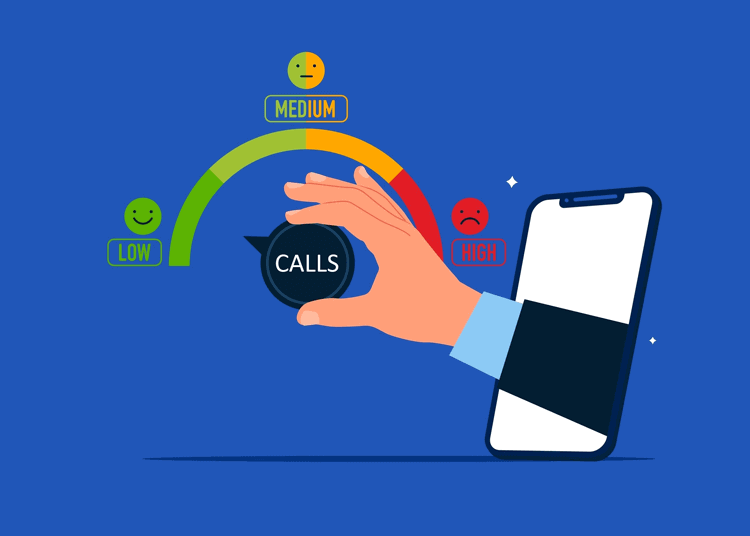Customer Satisfaction Survey Best Practices and Top Questions Based on Real-Life Examples
Understanding and enhancing customer satisfaction is extraordinarily important for business success. Companies can distinguish themselves by providing the best customer experience. Customer satisfaction surveys play a vital role in this process, offering businesses insights into those customer experiences and identifying areas for improvement.

In this article, we present the best practices for creating effective customer satisfaction surveys and identify the top questions to ask, based on real-life examples.
Why Consider Our Customer Satisfaction Survey Best Practices and Questions
Drawing on our 24 years of experience in providing help desk software to a diverse range of customers, we performed a comprehensive analysis of survey data. We gathered questions and prompts from surveys that our successful customers have created over the years. Believing in the expertise and experience of these customers, we anonymized and analyzed this wealth of information. This allowed us to gather the best practices and most effective questions for gauging customer satisfaction.
We believe these can help any support organization design customer satisfaction surveys that truly resonate with their customers and in the end drive their own continuous improvement.
Why Customer Satisfaction Surveys Are Important
Customer satisfaction surveys provide invaluable insights into customer perceptions and experiences. These in turn are important for several reasons:
- Understanding Customer Needs and Expectations: By gathering customer satisfaction information, companies can tailor their offerings to better meet customer demands, leading to increased satisfaction and loyalty.
- Identifying Areas for Improvement: Feedback from customer satisfaction surveys highlights areas where the business may be falling short, allowing them to make targeted improvements.
- Enhancing Customer Retention: Satisfied customers are more likely to remain loyal to a brand. Proactively addressing issues can lessen customer churn and help build long-term relationships.
- Building Customer Trust and Engagement: Customer trust and engagement can grow when they see that a company values their opinions and acts on their feedback.
- Earning a Positive Company Perception: High satisfaction levels can lead to positive word-of-mouth and online reviews, attracting new customers and enhancing the company's reputation.
- Driving Innovation: Customer feedback often includes suggestions for new features, products, or improvements. These insights can help businesses to stay ahead of the competition by offering products and services that are aligned with customer desires.
- Measuring Performance: Customer satisfaction surveys provide a measurable way to track the performance of different departments and employees.
- Making Data-Driven Decisions: Customer satisfaction surveys provide concrete data that can guide business decisions.
- Boosting Employee Morale: Positive feedback from customers can be shared with employees to boost morale and motivation.
8 Top Customer Satisfaction Survey Best Practices
The following are 8 of the top best practices for customer satisfaction surveys based on the surveys of our successful customers:
-
Clear and Concise Questions
- Ensure that questions are straightforward and easy to understand.
- Avoid using technical jargon that might confuse respondents.
-
Balanced Mix of Question Types
- Use a variety of question types including rating scales, yes/no questions, and open-ended questions.
- This approach captures both quantitative and qualitative feedback.
-
Focus on Key Aspects of Service
- Address core areas such as timeliness, professionalism, knowledge, and overall satisfaction.
- Include questions that cover different touchpoints of the service experience.
-
Provide Opportunities for Additional Feedback
- Allow respondents to provide additional comments and suggestions.
- Include open-ended questions for detailed feedback.
-
Ensure Anonymity and Confidentiality
- Assure respondents that their feedback is anonymous to encourage honest responses.
- Explain how the feedback will be used to improve services.
-
Follow Up on Feedback
- Include a question asking if the respondent would like a follow-up from a manager.
- Ensure that there is a process in place to address issues raised in the survey.
-
Thank Respondents
- Show appreciation for the time taken to provide feedback.
- Include a thank you message at the beginning and end of the survey.
-
Keep Surveys Short and Focused
- Aim to keep the survey short to maintain the respondent's attention.
- Focus on the most important aspects to avoid overwhelming the respondent.
The Best Questions to Ask in a Customer Satisfaction Survey
Here are examples of the best customer satisfaction survey questions to ask as analyzed from our customers' surveys, and then categorized:
-
Overall Satisfaction
- How satisfied are you with the level of support provided?
-
Professionalism and Courtesy
- Was the analyst courteous and professional?
- How would you rate the professionalism of our support team?
-
Timeliness
- Was your call answered in a timely fashion?
- Was your issue resolved in a timely manner?
-
Technical Knowledge
- Did the analyst present product knowledge and technical skill?
- Did the support representative possess sufficient technical knowledge to solve the issue?
-
Resolution
- Was your issue resolved to your satisfaction?
- What was the outcome of your call?
-
Communication
- Did the Help Desk keep you updated on your issue until it was solved?
- Did the support representative provide professional and concise communication on the issue?
-
Overall Experience
- How would you rate your overall experience when dealing with the Help Desk?
- How would you rate your overall satisfaction with the way your request was processed?
-
Feedback and Suggestions
- Would you like to provide any feedback?
- What would have made your experience with us better?
-
Follow-Up
- Would you like a manager to call you?
-
Additional Questions
- How likely are you to contact support through this service in the future?
- Is there anything else you would like us to know about your experience?
Conclusion: The Best Surveys for the Best Support
Customer satisfaction surveys are a key part of a successful customer experience strategy. Businesses can gain valuable insights into their customers' perceptions and expectations.
Grounded in over two decades of supporting our customers, and in their collective expertise in supporting theirs, our analysis provides a best-practices framework for creating effective surveys. By following these guidelines, businesses can improve their customer service and build customer loyalty and engagement.
But it is important to remember that the key to a successful survey is not just in asking the right questions but in listening to and acting on the feedback. This will help keep your business competitive and customer-focused in a highly-competitive world of customer service.
Thank you for exploring our home-grown analysis of customer satisfaction survey best practices and top questions with us. We hope they contribute to your ongoing success in delivering exceptional customer experiences.
Giva Can Help You Continue in Customer Service Excellence
Giva customer service and help desk software systems can further help your ongoing success in all areas of support. Features include:
- Customer Satisfaction Surveys: Capture feedback on a continuous basis to measure customer pulse with our customizable customer satisfaction surveys.
- AI Copilot Capability: Harness the power of Giva's AI Copilot to effortlessly refine responses and quickly access and format solution information, empowering agents to address customer issues with accuracy and efficiency.
- Knowledge Base: Stop reinventing the wheel with a searchable knowledge base. Leverage valuable customer service resolutions previously created to resolve similar tickets.
- Customer Self-Service Portal: Provide customers round-the-clock access to customer service resources, so they can resolve their own issues before contacting your agents.
- Automate and Schedule Tasks and Ticket Workflows: Automatically open tickets on a scheduled and recurring basis. Automate escalation and closure of tickets.
- Multiple Service Desk Instances/Configurations: Customize Giva for any department or subsidiary organization and deliver real-time agent and team analytics to help improve performance.
Discover the Giva difference! Book a free Giva demo to see our solutions in action, or start your own free, 30-day trial!





